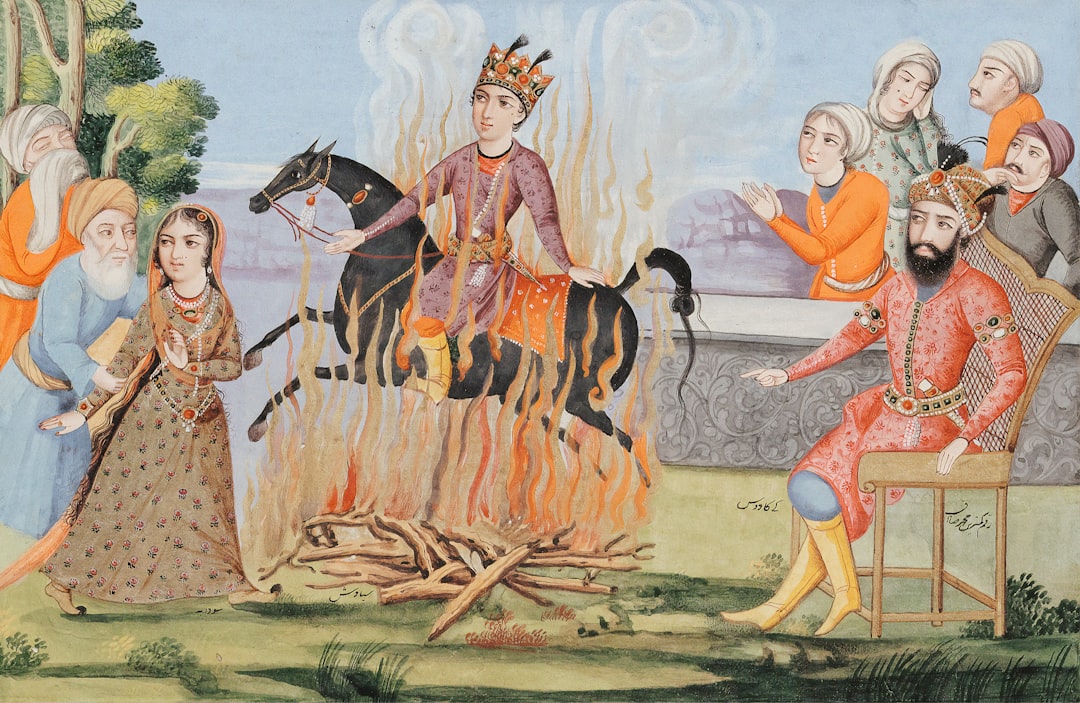Awhadi Maraghai, also known as Awhadi Esfahani, was a distinguished Persian Sufi poet of the 14th century. Born in 1274/75 in Isfahan, he later settled in Maragha, where he spent the remainder of his life until his passing in 1338. His poetic works are celebrated for their depth, mysticism, and exploration of human emotions.
One of his notable ghazals delves into themes of longing, separation, and the profound impact of love. Below is an English translation of this poignant poem:
Last night, my cries and laments reached the seven heavens,
Two sighs arose from my heart, setting my soul aflame.
Have you heard what the body endures from the soul's separation?
From the pain of your absence, my heart suffers the same.
Never have I faced cruelty or experienced such distance,
Yet from you, my unkind beloved, oppression and tyranny came.
Grant me justice: where shall I voice this grievance?
That harm has come to friends from the chosen companion's name.
Last night, the rival saw me at your street and said:
"Again, this wronged one has arrived, crying your name."
Perhaps your kindness will bring me before you,
For by my own efforts, where can I claim?
Our condition has become so public that for years,
Stories of this love have been everyone's claim.
One day, you'll hear that Awhadi's grief-stricken body
Became dust at your door, reaching your threshold all the same.
I am the nightingale, lamenting from pain, especially
In the season when the rose blooms and the crimson flowers proclaim.
In this ghazal, Awhadi masterfully portrays the anguish of separation and the consuming fire of unfulfilled love. The imagery of cries reaching the heavens and a heart set ablaze conveys the intensity of his emotions. He juxtaposes his previous unfamiliarity with cruelty against the newfound oppression experienced from his beloved, highlighting the paradox of love's pain.
The poet seeks justice and understanding, questioning where he might voice his grievances about the harm inflicted by a cherished companion. The mention of a rival observing his plight adds another layer, emphasizing the public nature of his sorrow and the widespread tales of their love.
Awhadi's hope that the beloved's kindness might bring them together reflects the vulnerability and yearning inherent in love. The ghazal culminates in a poignant image of the poet's eventual demise, with his body turning to dust at the beloved's doorstep—a testament to his unwavering devotion. The closing lines draw on the symbolism of the nightingale and the blooming rose, traditional motifs in Persian poetry representing the lover and the beloved, respectively.
This ghazal exemplifies Awhadi's ability to convey deep emotional experiences through rich imagery and metaphor, solidifying his place among the esteemed poets of Persian literature.
Original Persian Ghazal:
دوشم فغان و ناله به هفت آسمان رسید
دو دم به دل برآمد و آتش به جان رسید
بر تن شنیدهای چه رسید از فراق جان؟
از درد دوری تو دلم را همان رسید
هرگز جفا نبرده و دوری ندیدهام
بر من جفا و جور تو نامهربان رسید
انصاف من بده: که کجا گویم این سخن؟
کز یار برگزیده به یاران زیان رسید
دوشم رقیب بر سر کوی تو دید و گفت:
باز این ستم رسیدهٔ فریادخوان رسید
ما را مگر به پیش تولطف تو آورد
ورنه به سعی ما به کجا میتوان رسید؟
حال من و تو فاش چنان شد، که سالها
زین دوستی بهر طرفی داستان رسید
یک روز بشنوی که: تن اوحدی ز غم
خاک در تو گشت و بدان آستان رسید
من بلبلم ز درد بنالم، علیالخصوص
فصلی که گل شکفته شد و ارغوان رسید





